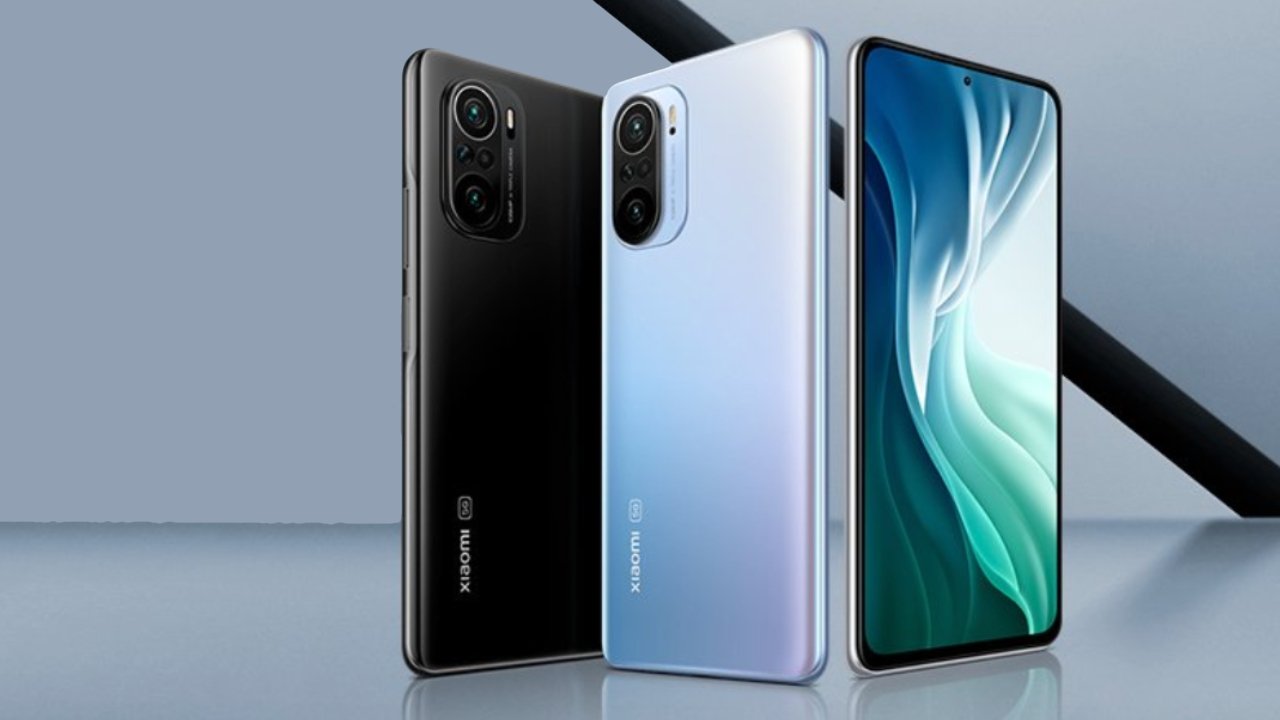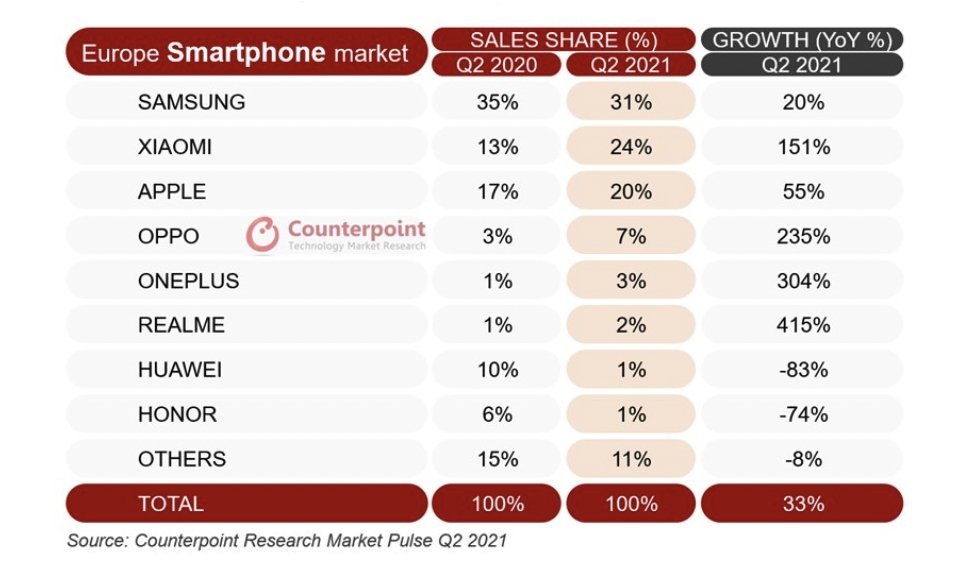New research figures show that Chinese smart phone manufacturer Xiaomi outsold Apple's iPhone in Europe in Q2 2021, and was beating Samsung by the end of the quarter.
The latest market research report from Counterpoint claims that Europe is seeing sales of smart phones generally recover from their coronavirus lows. Year on year figures for Q2 2021 were up 33%, but apart from the iPhone SE "bright spot" for Apple, Q2 2020 was the worst smartphone quarter for all vendors, in a decade.
As the market recovers, Counterpoint says that there have been changes in the top end with which firms are selling the most.
The ongoing decline of Huawei has seen OPPO, OnePlus, and realme, all gain sales. Most significantly, Xiaomi moved from third to second, overtaking Apple in terms of sales in Europe during the quarter.
"Xiaomi's news gets even better though," said Counterpoint associate director Jan Stryjak. " Samsung suffered significant supply issues in May and June due to Covid-19 related factory shutdowns in Vietnam, and this has started to impact sales."
"Samsung's sales in Europe declined by 20% in June 2021 compared to May 2021," he continued, "which opened the door for Xiaomi to become Europe's top-selling smartphone vendor by the end of the quarter."
Stryjak notes, however, that Samsung's problems "should be short-lived." He also notes that in Q2 2021, Apple was "midway between launches."
 William Gallagher
William Gallagher



 Andrew O'Hara
Andrew O'Hara
 Malcolm Owen
Malcolm Owen
 Marko Zivkovic
Marko Zivkovic

 Chip Loder
Chip Loder
 Christine McKee
Christine McKee

 Amber Neely
Amber Neely


-m.jpg)





38 Comments
Apple “beat” Xiaomi and Samsung a long time ago.
Here we go again. Selling a boatload of phones at razor-thin margins versus Apple selling less phones at a profit is not a success.